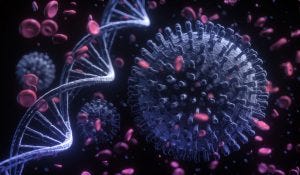
Thermo-stability could give DNA vaccine advantage in COVID-19 race, says InovioThermo-stability could give DNA vaccine advantage in COVID-19 race, says Inovio
Inovio says the tolerance to heat of its DNA vaccine candidate could set it apart from the mRNA, protein, and viral-based COVID-19 vaccines in development.

Inovio says the long shelf life and tolerance to heat of its DNA vaccine candidate could set it apart from the mRNA, protein, and viral-based COVID-19 vaccines in development.
Inovio’s COVID-19 vaccine INO-4800 is composed of synthetic, circular DNA plasmids that encode parts of the viral protein. The candidate is in Phase I trials but Inovio is looking to initiate Phase 2/3 studies later this month, subject to US Food and Drug Administration (FDA) clearance.
The candidate lags behind other candidates in terms of development and funding. The frontrunners in OWS are AstraZeneca’s ADZ1222, Pfizer/BioNTech’s BNT162b2, and Moderna’s mRNA-1273, all in Phase III trials.

Image: iStock/flyparade
But Inovio has a major advantage over these three potential prophylactics, says CEO Joseph Kim. Unlike AstraZeneca’s program based on modified chimp adenovirus vectors, and Pfizer and Moderna’s messenger RNA (mRNA) technology-based offerings, DNA vaccines “are naturally a lot more stable.”
Add to this that INO-4800 uses a patent-protected formulation to increase its stability further, Kim tells us that the candidate’s thermo-stability profile will be unique. Other DNA vaccines in its pipeline have demonstrated a shelf life of more than a year at room temperature, and five years when refrigerated. Even in tropical climates, Inovio’s vaccines can remain stable for more than 30 days, Kim says. For INO-4800 therefore, the absence of a cold-chain and the complexities and risk of managing one could make it a gamechanger in the COVID-19 vaccine space.
Manufacturing 100 million doses
As INO-4800 prepares to move through the clinic, Inovio has added Thermo Fisher to a growing list of contract development and manufacturing organizations (CDMOs) it is working with in its aim to produce 100 million doses next year.
Inovio has no manufacturing capabilities of its own, but has inked deals with Germany’s Richter-Helm BioLogics and Alachua, Florida-based Ology Bioservices to support the vaccine.
Thermo Fisher joins this consortium, adding both DNA plasmid drug substance and drug product capabilities from its US network, and as Kim tells us “it’s great to have them aboard.” However, Kim adds, the dealmaking will not stop here with plans afoot to bring on additional CDMOs going forward.
One CDMO which the firm won’t be working with anymore is VGXI, a subsidiary of GeneOne Life Science. The CDMO scaled-up production of the vaccine from its facilities in The Woodlands, Texas earlier this year to enable Phase I trials but has since been accused by Inovio in a lawsuit of refusing to pass on the technical know-how to manufacture INO-4800 to Inovio’s other third-party partners.
Kim, unsurprisingly, will not comment on the lawsuit as it is still ongoing, but does say that VGXI is, again unsurprisingly, no longer part of Inovio’s plan to produce INO-4800.
In a statement in June, VGXI said it was surprised of was surprised by Inovio’s court filing.
“VGXI has been and continues to be a good manufacturing partner to Inovio. Inovio was only able to start its clinical study in April 2020 due to VGXI’s efforts and collaboration. VGXI has already manufactured sufficient doses of the vaccine candidate for Inovio’s planned large-scale COVID-19 clinical trials, and VGXI continues manufacturing Inovio’s COVID-19 vaccine candidate,” the firm said.
“For reasons unknown to VGXI, rather than continue working with VGXI to achieve accelerated manufacturing levels, Inovio has instead filed this court action to try to take VGXI’s intellectual property. Inovio is in breach of its obligations under the Supply Agreement, and VGXI provided Inovio a notice of termination on May 7, 2020.”
About the Author
You May Also Like
schedl_b_and_w.jpg?width=100&auto=webp&quality=80&disable=upscale)
schedl_b_and_w.jpg?width=400&auto=webp&quality=80&disable=upscale)



